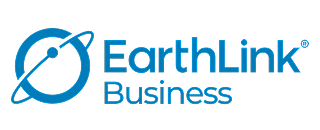In this guide:
Choosing a business internet provider | Business vs. residential internet | Connection types | Multi-location internet | Need help choosing your plan? | FAQ | Key terms and definitions
In this guide:
Choosing a business internet provider
Choosing the right business internet provider starts with understanding what matters most to your company. The right plan doesn’t just keep your business connected; it improves your team’s productivity, secures your data, and scales to match your future goals.
Regardless of your company’s size or industry, there are several advantages of business internet plans that actually drive your business forward (rather than just keeping you online).
Here’s what to look for to make the most out of your business internet plan:
Connection and performance
- Speed and bandwidth: Match your plan to daily usage, users, and devices.
- Type of connection: Fiber offers the fastest symmetrical speeds; cable, DSL, or fixed wireless may also be available.
- Reliability and uptime: Look for an SLA with at least 99.9% uptime and proactive outage prevention.
Support and service
- Customer support: Ensure 24/7 access, and test responsiveness before signing.
- SLAs: Review uptime commitments and compensation for missed guarantees.
Future-proofing and security
- Scalability: Ensure your plan can grow with your business.
- Security: Seek providers with built-in protection from malware, phishing, and network threats.
Additional factors
- Cost: Balance value and performance.
- Bundled services: Packages with phone, IT support, or mobile options can reduce costs.
- Backup options: Fixed wireless or LTE failover ensures continuity during outages.
Once you understand what to look for, narrow your focus based on your company’s size and structure: Up to 20 employees | Up to 200 employees | 200+employees
Once you understand what to look for, narrow your focus based on your company’s size and structure:
1–20 employees: Small business
- Speed that fits your workflow: Choose speeds between 100–500Mbps to support email, point-of-sale, cloud tools, and video calls.
- Simple pricing: Look for flat monthly rates, no hidden fees, and short contract terms.
- Bundled services: Packages with phone, security, or mobile can help lower costs.
- Support availability: Choose providers with 24/7 customer service and live agent access.
- Installation timeline: Fast setup matters when your business can’t afford delays.
- Wi-Fi coverage: Ensure you have enough range to support your space and devices.
- Backup options: A basic LTE failover can keep you online during outages.
20–200 employees: Growing business
- Higher speeds or fiber options: Choose 500–1,000Mbps (1Gbps) to support multiple users, cloud apps, and remote work.
- Symmetrical speeds: These are essential for Voice over Internet Protocol (VoIP), file sharing, and uploading data to cloud systems.
- Service level agreements (SLAs): Look for guaranteed uptime and clear repair timelines.
- Scalable plans: Your internet should grow as your team and needs expand.
- Support options: Consider providers that offer on-site help, a dedicated rep, or access to a business tech team.
- Network security tools: Look for built-in protections like basic cybersecurity, web filtering, or bundled security services.
- Separate guest networks: Guest networks are important for retail and other client-facing businesses.
Need help finding an internet plan for your growing business? Find answers and free expert help on our support page.
200+ employees or multiple locations: Enterprise business
- Dedicated fiber or Ethernet: Look for 1–10Gbps speeds with private, non-shared connections.
- Redundancy and failover: Use multi-line or multi-site backups to maintain uptime.
- Custom SLAs and performance metrics: Look for guarantees around latency, jitter, and packet loss.
- Cloud readiness: Ensure your network can support SaaS platforms, virtual desktops, and large-scale cloud collaboration.
- Advanced cybersecurity: Implement tools for threat detection, intrusion prevention, and firewall management.
- Static IPs and VPN support: Include secure internal access and remote team connectivity.
- IT consulting and integration support: Utilize expert guidance for everything from onboarding through full network optimization.
- Branch office connectivity: Use SD-WAN or managed networking to support multi-site operations.
We provide no-cost professional consulting for enterprise internet solutions. Visit our partner page for free expert advice.

Pro tip: Be sure to verify service availability!
No matter your business size, it’s important to verify service availability in your area and check contract terms for things like early termination fees or auto-renewals. Look for providers with strong customer support, especially when it comes to outages or technical issues.
Your guide to the best business internet providers
Plan and provider insights from HighSpeedInternet.com help you choose your ideal business internet solution. Quickly identify competitive pricing, reliable connection types, and the speeds your operations require.
Find reliable business internet near you
Enter your zip code to see available providers in your area. Compare plans and features to help you make an informed, confident decision.
Want help choosing your plan? Speak to a live, U.S.-based consultant for free at +1-833-923-6262.
Our agents will guide you through all the providers available in your area and offer personalized recommendations to help you choose your plan with confidence.
Whether you explore plans on our site or work with an agent, you’ll always get unbiased and accurate information. Click a provider tile for more details about plans and features.
Business vs. residential internet: What’s the difference?
While residential internet is great for everyday home use, business internet is designed to handle the demands of a growing company (even if you’re growing it out of your living room).
With faster upload speeds, uptime guarantees, and included security tools, business internet provides the reliability and professionalism that will keep your company competitive.
Here’s what sets business internet apart:
| Feature | Business internet | Residential internet |
|---|---|---|
| Speed and performance | Higher speeds with equal upload and download rates. Dedicated Internet Access (DIA) guarantees consistent performance. | Shared bandwidth and download speeds can slow during peak hours. |
| Reliability and support | Includes SLAs, uptime guarantees, and 24/7 tech support for quick issue resolution. | “Best effort” service with limited support and few options during outages. |
| Security and features | Comes with static IPs, advanced security, and tools like cloud storage, remote access, and data backup. | Focused on personal use with minimal security or business tools. |
Even for home offices, business internet delivers consistent, dependable, and professional connectivity with tools that go far beyond residential service.
Dive deeper into business vs. residential internet in our comprehensive review.
Types of connections
Whether your connection runs through cables, phone lines, or the air, each type of business internet has its strengths. Understanding how they differ helps you find the right fit for your speed, budget, and reliability needs.
Fiber (10–100Gbps): Delivers the fastest and most reliable internet connection using fiber-optic cables. It offers symmetrical upload and download speeds for data-heavy tasks like cloud computing, video conferencing, and VoIP.
Best for data-intensive, high-demand, or enterprise-level organizations that rely on constant, high-performance connectivity.
Cable (1–10Gbps): Runs on the same coaxial lines as home internet but offers stronger performance for businesses. It supports multiple users, video calls, and cloud workflows without the higher cost of fiber, though speeds can fluctuate during peak hours.
Best for small to midsize businesses that rely on cloud apps and online tools, needing strong everyday performance.
DSL (10–100Mbps): Uses existing telephone lines to deliver affordable internet access for basic business operations. While dependable for lighter workloads, it can slow down with video calls, file transfers, and supporting multiple users.
Best choice for small businesses that need a simple, affordable connection for everyday online tasks.
Fixed wireless (50–500Mbps): Transmits high-speed internet through radio signals instead of cables, offering quick setup and flexibility for hard-to-reach locations. Performance depends on line of sight and may vary in bad weather.
Best for rural or suburban businesses without fiber or cable access, or those needing a dependable backup connection.
Satellite (50–400Mbps): Uses orbiting satellites to deliver internet almost anywhere. While slower and more prone to latency than wired options, it provides vital access for remote or off-grid operations.
Best for businesses in hard-to-reach areas with no wired alternatives.
In short, fiber offers the best long-term performance for most businesses, cable is a dependable choice for everyday business use, and DSL covers the basics on a budget. Fixed wireless and satellite options bridge the gap for businesses outside wired service areas.

Looking to build your company’s Wi-Fi network?
We tested and reviewed a handful of wired routers and Wi-Fi access points from Cisco, Zyxel, and more. Be sure to check out our list of the best routers and access points for business if you need a few ideas.
Multi-location business internet
Managing multiple sites? Business aggregators help multi-location companies manage all their internet connections in one place with one provider, simplifying their setup, support, and oversight.
How aggregators streamline vendor management
- Network services: Equip every location with the internet plan that fits best, then manage them all in one place with one bill.
- Overlay services: Balance bandwidth across sites to prevent slowdowns, add backup routes for outages, and secure communication between sites.
- Managed services: Manage setup, monitor performance, and resolve issues quickly across all locations with one trusted partner.
Managing multiple locations doesn’t have to mean juggling vendors, contracts, and support teams. Aggregators combine all your connections into one plan, one point of contact, and one monthly bill.
Need help choosing the right business internet plan?
HighSpeedInternet.com has partnered with Clearlink Consulting to help businesses find their best-fit internet solution, for free.
Clearlink Consulting is an independent technology consulting firm, not a service provider. Our local, expert advisors will take the time to understand your needs and match you with the right speed, plan, and connection type, so you can feel confident about your business internet solution.
The right internet speed keeps your business running efficiently. Whether you’re a small shop or managing multiple locations, our consultants can help you find the plan and provider that meets your daily demands.
Get free, expert advice about your business connectivity at 833-923-6262.
FAQ about business internet
How is business-grade internet different from residential?
How accurate is this availability data, and is it updated regularly?
After I enter my zip code, will I see plan details or get a call from someone?
Can I talk to someone to get help choosing the right plan, or is this just a directory?
Key terms and definitions
- LTE failover: Backup internet that switches to a cellular network if your main connection fails.
- Voice over Internet Protocol (VoIP): Technology for making phone calls over the internet.
- Service level agreements (SLA): A provider’s written guarantee for service quality, uptime, and repairs.
- Web filtering: Blocks unsafe websites, limits non-work browsing, and prevents online threats.
- Static IP: An internet address that stays the same instead of changing.
- Virtual Private Network (VPN): A secure connection that hides online activity and protects remote access.
- SD-WAN: Manages multiple internet connections for better speed and reliability.
- Dedicated Internet Access (DIA): A private, guaranteed-speed connection just for your business.
- Intrusion prevention: A security system that detects and blocks suspicious activity or attacks on your network in real time.






